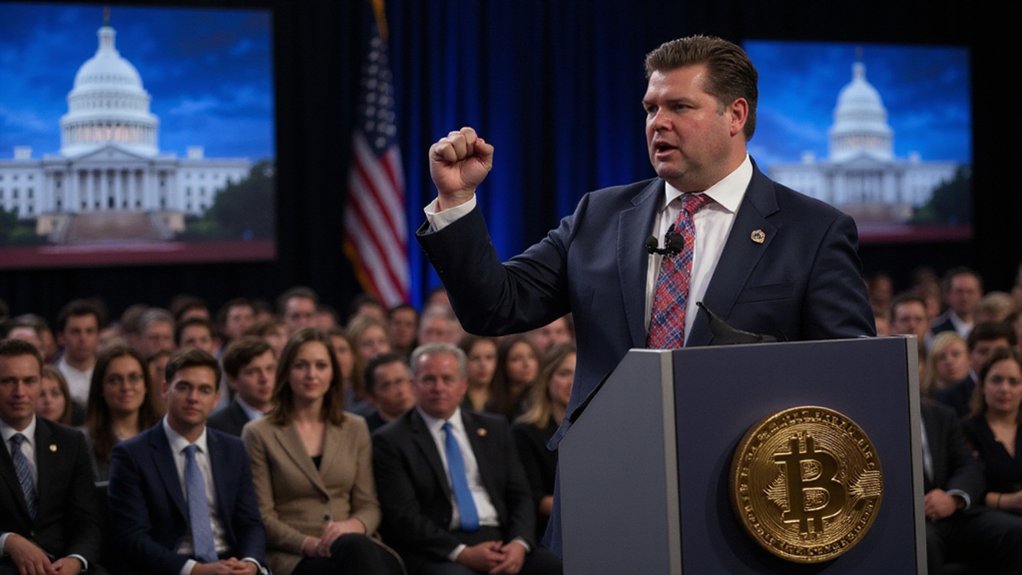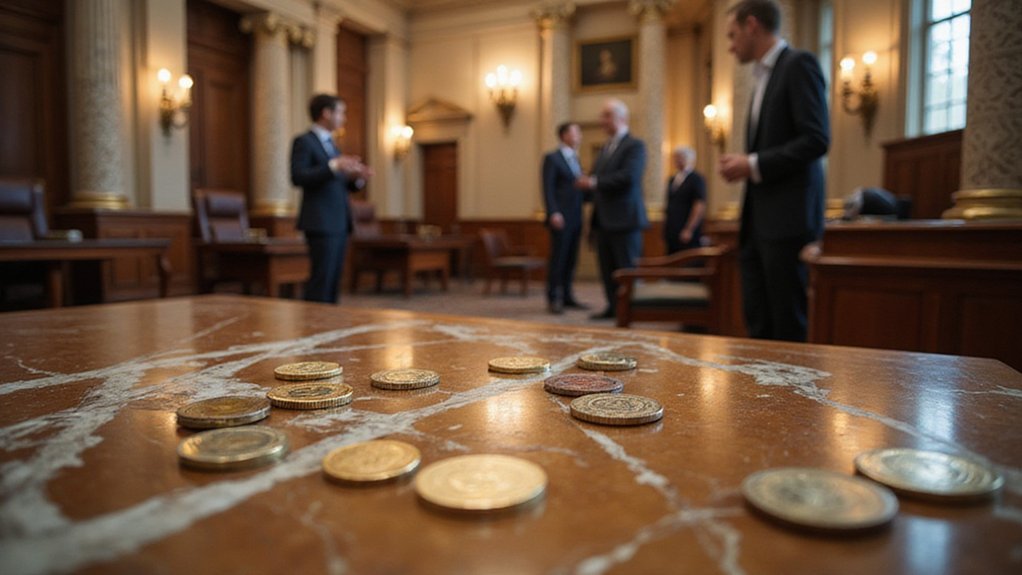Over 110 crypto industry heavyweights—from exchange giants Coinbase and Kraken to venture powerhouse a16z—have formed an unlikely coalition with a singular, urgent mission: preventing the U.S. Senate from eviscerating the very developers who built their digital fortunes.
The DeFi Education Fund orchestrated this collective plea, demanding explicit legal protections for software developers and non-custodial service providers before they’re wrongfully shackled by traditional financial intermediary regulations.
The stakes couldn’t be clearer. America’s blockchain developer share has plummeted from 25% in 2021 to merely 18% in 2025—a brain drain that would make any rational policymaker pause. Yet here we stand, watching regulatory uncertainty drive innovation overseas while lawmakers debate whether code-writing constitutes money transmitting.
The coalition’s letter to Senate Banking and Agriculture Committees carries an unmistakable ultimatum: include developer protections in upcoming market structure legislation, or lose industry support entirely.
This isn’t merely corporate posturing. The coalition backs the House-passed CLARITY Act (which garnered 294 votes, suggesting rare bipartisan sanity), while insisting the Senate strengthen it with nationwide protections.
They’re specifically advocating for language from the Blockchain Regulatory Certainty Act and Keep Your Coins Act—though these measures alone won’t suffice without explicit developer safeguards.
The fundamental issue transcends regulatory turf wars. Open-source blockchain development operates fundamentally differently from traditional intermediated financial systems.
Developers create protocols; they don’t custody funds or execute transactions. Non-custodial service providers facilitate decentralized access without holding user assets—yet current regulatory frameworks threaten to classify them as financial intermediaries, subjecting them to compliance burdens that could effectively criminalize code creation.
The coalition’s warning resonates beyond mere industry self-interest. Without federal clarity, inconsistent state regulations will continue fragmenting the regulatory landscape, driving builders toward more hospitable jurisdictions. The letter specifically references President Trump’s vision for America to become the crypto capital of the world. Adding to the industry’s optimism, the US Department of Justice will stop prosecuting DeFi developers for unlicensed operations.
The regulatory tension reflects the broader challenge of applying traditional frameworks to decentralized protocols that operate without intermediaries.
The September legislative deadline adds urgency to an already precarious situation.
Whether senators grasp the distinction between writing software and operating as a money services business will determine America’s blockchain future.
The industry has spoken with unprecedented unity—now lawmakers must decide whether they’re listening or simply watching innovation migrate elsewhere, one developer at a time.








